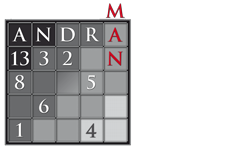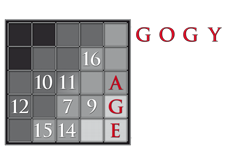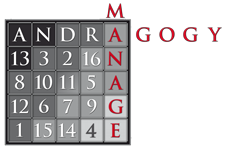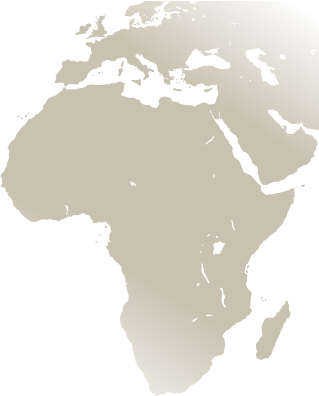



Professional experience in eastern and southern Africa since 1995
A. Comoros Union : Technical assistance to the EDF NAO support unit
1. Date : March 2020 - June 2021 (250 days)
2. Location : Moroni
3. Beneficiary organisation and parties involved : EDF NAO support unit, NAO support programme, technical ministries and programme management units on relate intervention sectors.
4. Position : Institutional expert, head of the technical assistance mission (1 other long term main expert and several short term ones), in partnership with ProMan Ltd. (L).
5. Responsibilities : Taking over from the previous incumbent (who resigned in 2018), in charge of executing this assignment’s last year of implementation ( 3 years or 36 months initially but extended to some 4 years on top of the short term assignments) more or less « zebra mode » for the team leader i.e. some 14 months’ presence.
6. Major activities and achievements :
Coordination of the technical assistance and advisory support to the NAO office in the challenging context of implementing a project in a state of crisis being very much behind schedule beginning 2020 with respect to the results to achieve in every area (institutional reinforcement, mastering of EDF financial and contracting procedures, strategic information system – monitoring and evaluation on top of the constitution of a critical mass of trained officials. Coaching or on the job support to the personal in charge of the NAO’s basic attributions 7 days a week, which includes the coordination and operational and financial follow-up of all EDF-funded projects. All the above while providing methodological and conceptual support as to:
- the programming, identification and formulation of all projects ;
- abiding strictly to EDF financial procedures ;
- the management of tenders and calls for proposals ;
- the execution of numerous training programmes, including those specific to EDF management.
At the core of the challenge to take up, the relaunching of the institutional transition that is to say the gradual transfer of the NAO office’s specific tasks (within the ministry) from the support programme that entertains an external unit let alone parallel to the national administration with viability as an obvious goal.
7. Skills and experience acquired :
Yet again another more in-depth involvement of Roland Deschamps on the long run as to reinforcing the EDF NAO staff. Getting back on the spot while picking up an assignment started more than two years before wasn’t going to be a piece of cake not to mention that the local personnel turn over had been quite important in the same unit.
ON the other hand, it was for Roland Deschamps another opportunity to execute a long term support assignment while coordinating the work of other experts (long term et short term).
B. Republic of Tanzania: advisory services as to future NAO support in the context of a gradual EDF phasing out
1. Dates: April – July 2013
2. Location: Dar-es-Salaam (& Zanzibar occasionally); field missions in Kigali (Rwanda) and Nairobi (Kenya).
3. Organisation and parties involved: NAO staff (support unit), EU delegation, technical ministries, departments and agencies, project/programme implementation units as well as EC Head office (….services / departments) and over 20 EU delegations and NAO offices/ support units in other ACP countries.
4. Position: Short-term expert, in partnership with Sofreco.
5. Responsibilities: Support to both the EU delegation and the NAO office (including its EDF funded support unit) in designing an EDF phasing out / exit strategy as to supporting the same office; This involved analysing how this issue is or has been addressed in other beneficiary countries while aiming at better ownership, capacity-building or streamlining of such set-ups.
6. Major activities and achievements:
6.1. In-depth analysis of the NAO set up in Tanzania, its connections or collaboration channels with ministries, departments and public agencies concerned; This included a workload assessment, numerous interviews or encounters with representatives or staff of all parties involved including within other international public aid structures (bilateral & multilateral) present in Tanzania; This involved contacting numerous EU delegations and NA offices across the EDF world, mostly in Africa and countries comparable or geographically close to Tanzania; Eventually, two field visits were carried out during the assignment (in Nairobi, Kenya and Kigali, Rwanda) for comparison purposes.
6.2. Organisation of a brain-storming workshop involving parties concerned (EU delegation, the NAO office, the MDA and implementing partners); This resulted in a intensive exchange of information/experience and a consensus on how to envisage the exit strategy sought without disrupting the on-going programmes while preparing a progressive phasing-out.
7. Skills and experience acquired:
An opportunity to be involved in the very highly strategic reflection on EC aid effectiveness in the frame of the Paris Declaration/ High level forums agenda (ownership, harmonisation, alignment, results-based management and mutual accountability) as well as the future of the support to be provided to the NAO offices while ensuring ownership and sustainability.
This issue is very high on the agenda as the 10th EDF programming ends in December 2013 and that the 11th EDF is the last one falling under the present Cotonou partnership agreement (valid till 2020). It was very alighting indeed to see how these issues are addressed in most ACP beneficiary countries and what innovative solutions or approaches have been either envisaged or even implemented in countries, including neighbouring ones such as Kenya and Rwanda, both visited during the assignment.
C. Monitoring & evaluation reinforcement of food security projects financed by the Belgian survival fund in Kenya
1. Dates: December 2003 and June 2004.
2. Lieu: Nyeri, Nairobi, Kenya.
3. Organisation: Belgian survival fund (+€250 million.) / Belgian ministry for Foreign affairs, external trade and development co-operation, DG « Development » - 6 rue Bréderode, Brussels.
Initiated by the Belgian parliament in 1983, the BSF has 20 implementation partners including the Belgian technical cooperation agency (BTC), NGO from the North and the South as well as UN agencies and programmes (IFAD & FAO, UNICEF, UNCDF);
It finances interventions in region stricken by extreme poverty and/or where famines occur chronically while systematically taking into account problems related to environmental degradation, unequal opportunities between sexes or gender issues as well as the fight against HIV-Aids. The fund is also supportive to fair trade, mutual responsibility or « empowerment » as well as
« ownership ».
4. Position: Specially qualified expert in the field of M&E and in this capacity head of the « Performance Monitoring and Evaluation System » project.
5. Responsibilities:
Making sure that the BSF’s principles are respected as to project cycle management (« PCM » - 6 phases from identification to programming) according to the logical framework approach - or planning by objectives. Its support focuses on food security, based on an integrated participative approach inclusive of all dimensions of poverty (OECD definitions 2001).
I therefore had to make sure that projects supported would include the social dimension (health, education, basic social infrastructures e.g. water and communications), community (or « societal » : iniquities based on status, protection of vulnerable minorities), political dimension (decentralisation and local development institutions), economy (markets, agriculture and the private sector & micro-enterprises, sustainable management of natural resources) and finally, the security dimension at large (sustainability/viability objectives, prevention of natural crises and social instability etc.
My activities would be divided between implementing or reinforcing PMES within projects supported by the BSF and carrying out field missions in the 20 countries concerned. This while collaborating with implementing partners as to the quality of their M&E systems. As the BSF was to be evaluated in 2005, I would assisted in providing it with tools geared at better assessing its impact and its programmes viability, effectiveness, efficiency and relevancy. This required aiming at more coherence through standardisation of management tools and the harmonisation of objectively verifiable indicators more specifically.
Moreover, I chaired the assessment committee to which all project & programme proposals would be submitted. It was required from each one to follow the causality principle of the logical framework approach: Baseline analysis (context and stakeholders), problem tree, identification of expected results and objectives, the strategy (means, costs and schedule) to execute according to assumptions and the risk analysis, the resources the PMES could rely on and its procedures, the definition of OVI (« SMART » or
« QQTTP » principles), verification sources logical frame matrix. Every situation, every project must follow the integrated approach (cfr infra 6.2.).
6. Achievements and projects mainly concerned:
I was involved with over 12 on-going projects, notably while carrying out field visits (Uganda, Niger, Kenya et Senegal) and systematically reviewed or revised their intervention logic and logical framework matrix of programmes monitored (cf. infra), on top of proposals submitted to the evaluation committee (20+) as well as of all those in their inception phase. As for Kenya more specifically:
6.1. Reinforcement of the PMES with IFAD: Historical partner of the GSF, having implemented 20 projects since 1995 and responsible for 1/4 of the portfolio. I visited 3 projects (2 in Uganda and one in Kenya – see below) and met with management in Rome HQ. Moreover, through the « Joint-Programme » unit based in IFAD HQ, I was involved in the PMES reinforcement initiated by IFAD in 2004, following up on our recommendations.
6.2. Central Kenya dry areas smallholder & community services Development programme (CKDP - €18 million – Central province):
Launched in 2001 and implemented by IFAD and UNOPS but experiencing important delays as to expected results, I was sent on location in December 2003 with the BFS representative (based in Tanzania) in order to accelerate the PMES implementation. I conducted a 3 days’ workshop with all parties concerned (field and ministries and made some recommendations that were presented to government before execution. This as observed in June 2004 while being part of a supervision mission. These assignments was an opportunity to work with experts and local representatives of IFAD as well as establishing contacts at the Belgian embassy.
7. Skills and experience acquired:
A very first experience in an Eastern Africa / Great lakes region country where, in spite of signs of economic and social progress overall, most parts of this part of the world are still facing extreme poverty and desolation.
A opportunity as well as to mastering the logical framework approach and its related performance monitoring and evaluation systems even better, which includes results-based management and planning by objectives. This allowed also to acquire much more knowledge of the reality of project management in the field though a better assessment of the local context and of different implementing partners.
Last but not least, I also started developing my capacity in terms of training / knowledge transmission in theses areas through conducting workshops and short training programmes.
D. Monitoring & evaluation reinforcement of food security projects financed by the Belgian survival fund in Uganda
1.Dates: April 2004
2. Locations: Kampala and Kabale, Kibaale & Hoima in central and eastern Uganda
3. Organisation: Belgian survival fund (+€250 million.) / see above
4. Position: Specially qualified expert in the field of M&E and in this capacity head of the « Performance Monitoring and Evaluation System » project.
5. Responsibilities: see above.
6. Achievements and projects mainly concerned: See above as well as “M&E” web page.
As for Uganda more specifically:
6.1. District Development Support Programme (€19 million – Uganda): 6-year programme started in 2000 and executed by IFAD and 5 districts administrations in central-eastern Uganda. I was part of the mid-term review carried out in July 2003 by a half a dozen experts (rural development, food security, nutrition, health, institutional development…) and made my recommendations, particularly as to monitoring and evaluation.
7. Skills and experience acquired:
Another experience in a country of Eastern Africa and the Great lakes region and another one as a workshop animator and organiser as well as a trainer. Prefiguring what would be my role in Kenya later that year (December 2003) and the following one (June 2004) but as from 2005 later in the DRC.
My first experience in a country extremely poor and facing very significant development challenges (no railway, harsh climate, regular droughts,very little access to drinkable water in most parts of its territory).
E. In charge of monitoring all programmes and projects financed by the United Nations industrial development organisation in Zimbabwe
1. Dates: June 1995 – September 1998
2. Location: Harare, Zimbabwe, Vienna, Austria and Johannesburg, South Africa
3. Organisation: United nations industrial development organisation (UNIDO). An agency which purpose is to support industry in general in countries that are developing or with economies in transition. Head quarter in Vienna, 169 member States and present in some 35 countries. In 1998, staff amounted to almost 800 and could mobilise some $375 million yearly on top of its own overhead budget (+/- $200 m.).
4. Position: Junior professional officer (seconded by the Belgian ministry of Foreign affairs and international development).
5. Responsibilities:
In charge of the UNIDO within the local UNDP representation in Harare, Zimbabwe, monitoring 4 other austral Africa countries (Zambia, Botswana, Namibia and South Africa to some extent).
My role comprised promoting, coordinating and monitoring various programmes that aimed at improve and optimize the management of natural resources across the industrial landscape.
I would regularly organise project evaluation missions, economic missions, conferences and trainings. I would report to the « Africa » director in HQ (Vienna) and the regional director based in Lusaka (Zambia) as from 1997. I took part in the UNDP management committee and in the coordination meeting of all UN agencies present in Zimbabwe.
6. Achievements:
For 3 years, I oversaw and monitored the implementation of over 15 projects of various sizes amongst some 30 being programmed between 1995 and 1998 in Zimbabwe and neighbouring countries. These programmes would operate following a three-folded strategy:
1. Promoting industrial waste minimisation techniques (« Cleaner production mechanism » - Montreal and Kyoto protocols); this included improving cost control and planning in order to aim at more efficiency and effectiveness;
2. Industrial restructuring of SME that would sometimes be sister companies of greater international entities (Anglo American, Delta Corp.) within specific sectors such as the leather industry (“from the animal to the shoe”), agribusiness or metal works;
3. Promoting foreign investment, notably by introducing financial incentives and marketing techniques linked with support to public sector and scientific research in the areas concerned by the above components.
Main projects
6.1. National cleaner production program for Zimbabwe (budget +/- $ 3.75 m.):
Started in 1994 with the collaboration of the greater industrial companies operating in the country (Anglo American, Delta Corporation etc.);
- Member of the programme’s steering committee;
- In charge of promoting and monitoring the implementation of waste minimisation techniques and cost control in a sugar refinery, a brewery, a food plant (tea, coffee, cereals) and a tannery;
- In charge of monitoring a industrial waste bio-methanisation pilot unit;
- In charge of promoting centralised resource management within an industrial park.
6.2. Support to the leather industry (budget $1 m./year between 1985 et 1998):
Very important UN Programme across the world geared at restructuring industrial units throughout the whole process (from the slaughter house and tanneries to the shoe maker) as well as vocational training.
- Overall coordination of the programme in Zimbabwe and member of the monitoring committee within the National leather institute;
6.3. Support to the implementation of Agenda 21 & the Montreal Protocol ($250,000 /year): Recycling of CFC gases implementation of environment safe techniques in the refrigerating, air-conditioning and fire-fighting equipment sector:
- In charge of monitoring the execution of the programme.
6.4. Zimbabwe investment promotion & competitiveness improvement programme ($ 300,000/year):
- Liaising with the Industrial Development Corp. –IDC), main player in manufacturing sector (automotive construction, glass, cement, electric cables etc.)
- Monitoring of the launching of a vocational training programme in 1997-98.
6.5. Metallurgy sector restructuring programme of COMESA member States ($800,000 /y.) included an important component for Zimbabwe and Zambia. Zimbabwe developed an autarchic metal works industry during the Rhodesian civil war.
7. Skills and experienced acquired between 1995 and 1998:
- Expatriation in Southern Africa
- Working for a UN agency and within a multicultural environment;
- In charge of an office with quite a large degree of autonomy;
- The coordination of projects in varied industrial sectors and areas;
- The development of a network of contacts within the scientific and industrial planet throughout:
- Multilateral agencies (e.g. European development fund of the EC) and bilateral co-operation ones (Belgium, Netherlands, France, UK, Scandinavian countries, Germany, Japan, Canada, Italy, United States etc.)
- UN agencies et programmes (UNIDO, UNDD, WFP, FAO, UNIFEM, UNFAP, World bank group – IBRD, IFC, MIGA et IDA, UNV, WHO, UNHCR, WLO-IWB, UNICEF, UNEP, etc.);
- NGO, consultancies and specialised firms in the area of EPCM (project engineering, procurement, contracting and management);
- National and international media.
Besides, as co-ordinator of the mission of the UNIDO director for Africa at the SUO summit in Harare in June 1997, that brought together African heads of States (Mandela, Kabila L-D., Museveni..) and other world leaders, high level diplomats and top officials amongst which the UNO Secretary general Mr Koffi Annan, I organised his programme and took part in press conferences and radio /TV interviews; I also had the opportunity to assist Mr Bé, Special envoy of the UN SG in Angola, during his stay while attending the summit, as well as his wife.

HOME
EDF NATIONAL AUTHORISING OFFICER
MONITORING & EVALUATION
SUSTAINABLE MANAGEMENT
PROCUREMENT & CONTRACT MANAGEMENT
FINANCE &
FOREIGN TRADE
LINKS & CONTACTS
ON-GOING ASSIGNMENTS
D.R. CONGO / ZAIRE
NORTHERN AFRICA
WESTERN AFRICA
CENTRAL AFRICA
EAST & SOUTHERN AFRICA
REST OF THE WORLD
Version Française
© ANDRAMAN 2009-2020
WEB DESIGN : PINXIPICTUS.BE